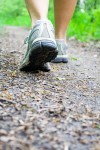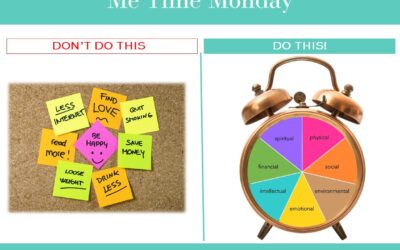 Fifty years ago this month, two things were born: Older Americans Month and me. While both of us are going strong, the Office of Women’s Health just kicked off National Women’s Health Week reminding all of us good health takes work, especially as we age. However, if you are caring for an older parent, working out and staying healthy often seems to get left off the To Do list.
Fifty years ago this month, two things were born: Older Americans Month and me. While both of us are going strong, the Office of Women’s Health just kicked off National Women’s Health Week reminding all of us good health takes work, especially as we age. However, if you are caring for an older parent, working out and staying healthy often seems to get left off the To Do list.
As women, we comprise 66 percent of the nation’s 65 million family caregivers. And studies show caregiving happens typically around age 50. This is also the same age where our health risks start to occur if we don’t have good habits in place. For instance, by age 50 the average American has gained approximately 30 pounds. We also lose ½ inch of bone and muscle mass every year after our 20s, creating more risk for osteoporosis and fractures, especially for post-menopausal women. Poor nutrition and lack of regular exercise contribute to both of these health problems.
A National Alliance for Caregiving (NAC) study on caregiver health risks found 85 percent of the caregivers who reported their health in decline while caring for a loved one are women and stress was the No. 1 complaint. We know stress impacts our health in numerous ways and according to the CDC accounts for 90 percent of all doctor visits. In the book So Stressed, two women doctors studied stress impact on women’s health. They found over the last 100 years, women’s biology has not kept up with technology advancements. Constantly bombarded by what I call noise pollution – ringing smartphones, chiming texts, email reminders, TV, traffic and tweets – women need to find ways to unplug.
Following are five things the Office on Women’s Health says women should do to improve our health and why caregivers are more at risk than the general population when it comes to following these guidelines:
1. Get a check-up
An annual mammogram after age 40 is an important preventative factor for breast cancer which strikes 1 in 8 women. The NAC study found 22 percent of women neglect this annual exam citing no time to get to their own doctor appointments and screenings. Today is National Women’s Check-up Day – use this day to schedule your doctor and dental appointments and screenings (remember a colonoscopy is also recommended after age 50 to detect and prevent colon cancer).
 2. Get active
2. Get active
Getting 150 minutes of cardio exercise a week is optimal – even if you find it in 10 minute bursts. Stress releases cortisol which can lead to belly fat and increase risk for heart disease, cancer and even Alzheimer’s disease. Finding ways to relax – meditation, yoga, tai chi – as well as getting heart rates up by moving daily is critical. Two easy things caregivers can do: park further away from your destination forcing you to walk and achieve the 10,000 recommended steps you should take daily; and take the stairs instead of elevators and escalators.
 3. Eat healthy
3. Eat healthy
Four out of 10 caregivers reported having problems with weight management – either losing or gaining weight while caregiving. Poor nutrition can impact both physical and emotional health. Finding ways to adopt healthy eating habits is not easy but I recommend caregivers make it fun. For instance, eating the rainbow daily ensures you are getting colorful fruits and vegetables into your diet for energy and anti-oxidants. Also carry healthy snacks in your purse such as almonds or fiber bars to avoid giving into a french fry frenzy or ice cream meltdown.
 4. Pay attention to mental health
4. Pay attention to mental health
NAC found 9 in 10 caregivers who felt their health declined while caring for a loved one reported depression. In a recent UCLA study, one-half of all caregivers of those with Alzheimer’s reported dealing with depression. And the CDC released a report last week stating boomer suicide rates increased 28 percent. The poor economy, jobless rate and caring for older parents were cited as possible contributing factors. Whether it is a support group, professional counseling, prescriptions for anti-depressants or bibliotherapy (writing in a journal), finding ways to deal with caregiver depression is essential – especially since a study in Sweden found that psychological stress in mid-life can lead to dementia later in life.
 5. Banish bad habits
5. Banish bad habits
Ten percent of caregivers reported turning to bad habits to cope with stress – smoking, drinking too much alcohol or misusing prescription drugs. Almost four in 10 caregivers also report insomnia yet sleeping a solid eight hours is one of the best things you can do to improve your health. Lack of sleep can cause weight gain, create frayed nerves and impact mental acuity – in an Australian study less than 5.5 hours of sleep a night was equivalent to .05 blood alcohol level.
Back to My Fitness Future @50
When I was a kid, the local YMCA was my home away from home. I took gymnastics classes there along with tons of other little girls hoping to become the next Nadia Comaneci. Tuesday nights were our family night at the Y – me in gymnastics, my younger brother enrolled in judo, my dad playing in pick-up games on the basketball court and my mom taking a women’s exercise class.
Recently, the YMCA announced 50 Moving Forward, a new program in partnership with Pfizer. The program embraces many of the principles upon which the YMCA was founded over 170 years ago – a holistic approach to fitness embracing Christian teachings of body, mind and spirit. Offering physical activities geared to 50-somethings, vaccinations and health screenings, nutritional counseling and social interaction, the program’s mission is to provide boomers with tools and a home where health and wellness are a priority. The physical activity classes include yoga, retro cycle classes pedaling to ’60s and ’70s tunes and other “fun” activities that don’t feel like going to a gym.
When I talk to caregivers across the country about health and wellness, I advise them to tap into their inner child to find their Me Time Monday. Jim Kauffman, YMCA national director for health and well-being, said the 50 Moving Forward program is much the same.
“For a lot of boomers, the Y was about childhood and having fun,” says Kauffman. “Our 50 Moving Forward program invites boomers back to enjoy the activities they did in their youth. If you took tap class, we have adult tap dancing classes. It’s about playing and benefiting from the physical outlet of that play.”
Looks like I may have to squeeze back into a leotard and try some backflips. On second thought, I think I’ll stick with my yoga pants and top and stay with downward facing dog pose.
Find the Me Time Monday program and more caregiver health and wellness information and tips in Snelling’s book, A Cast of Caregivers – Celebrity Stories to Help You Prepare to Care.





I don’t even know how I stopped up right here, but I assumed this publish was once great.
I don’t know who you’re however definitely you’re going to a famous
blogger if you are not already. Cheers!